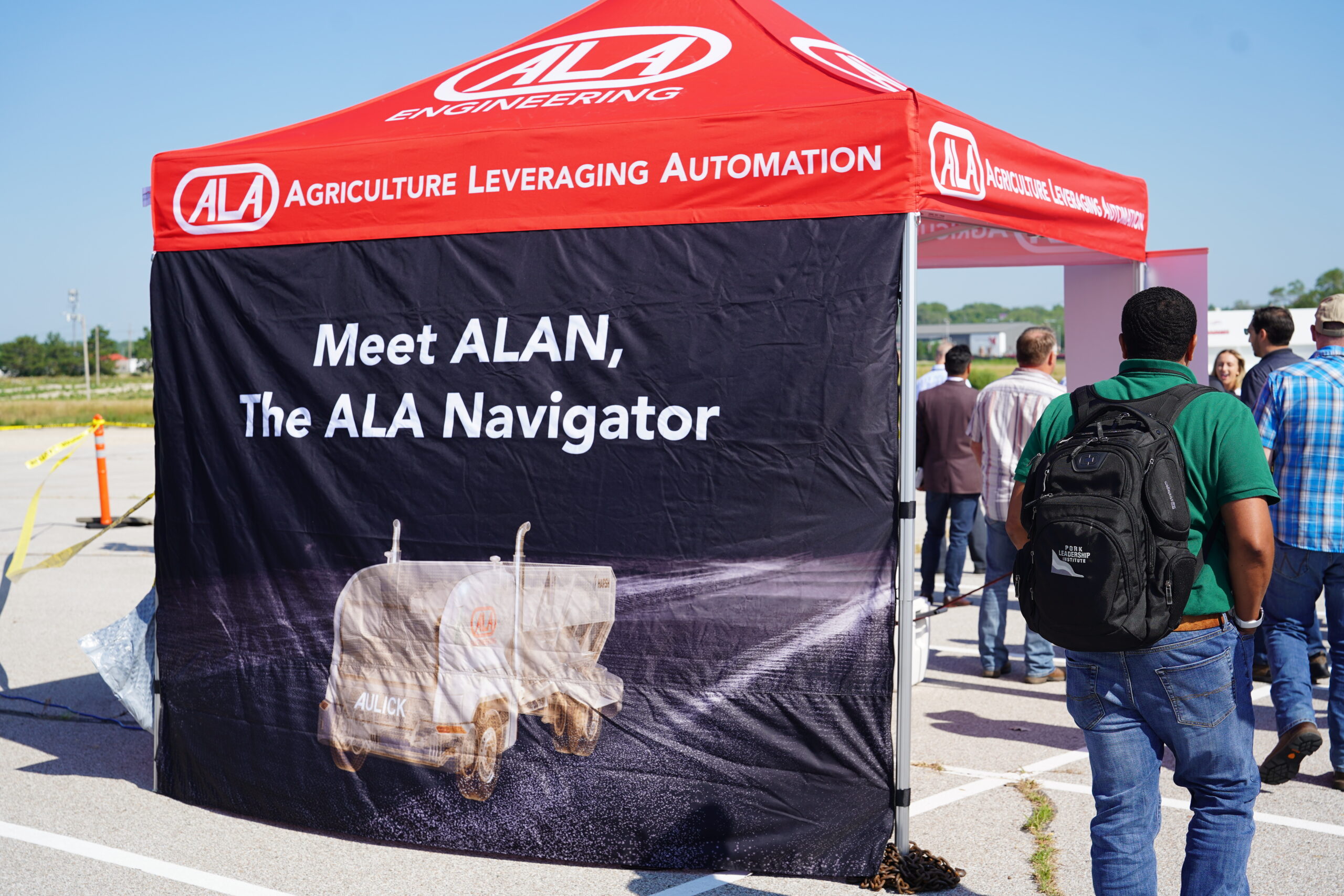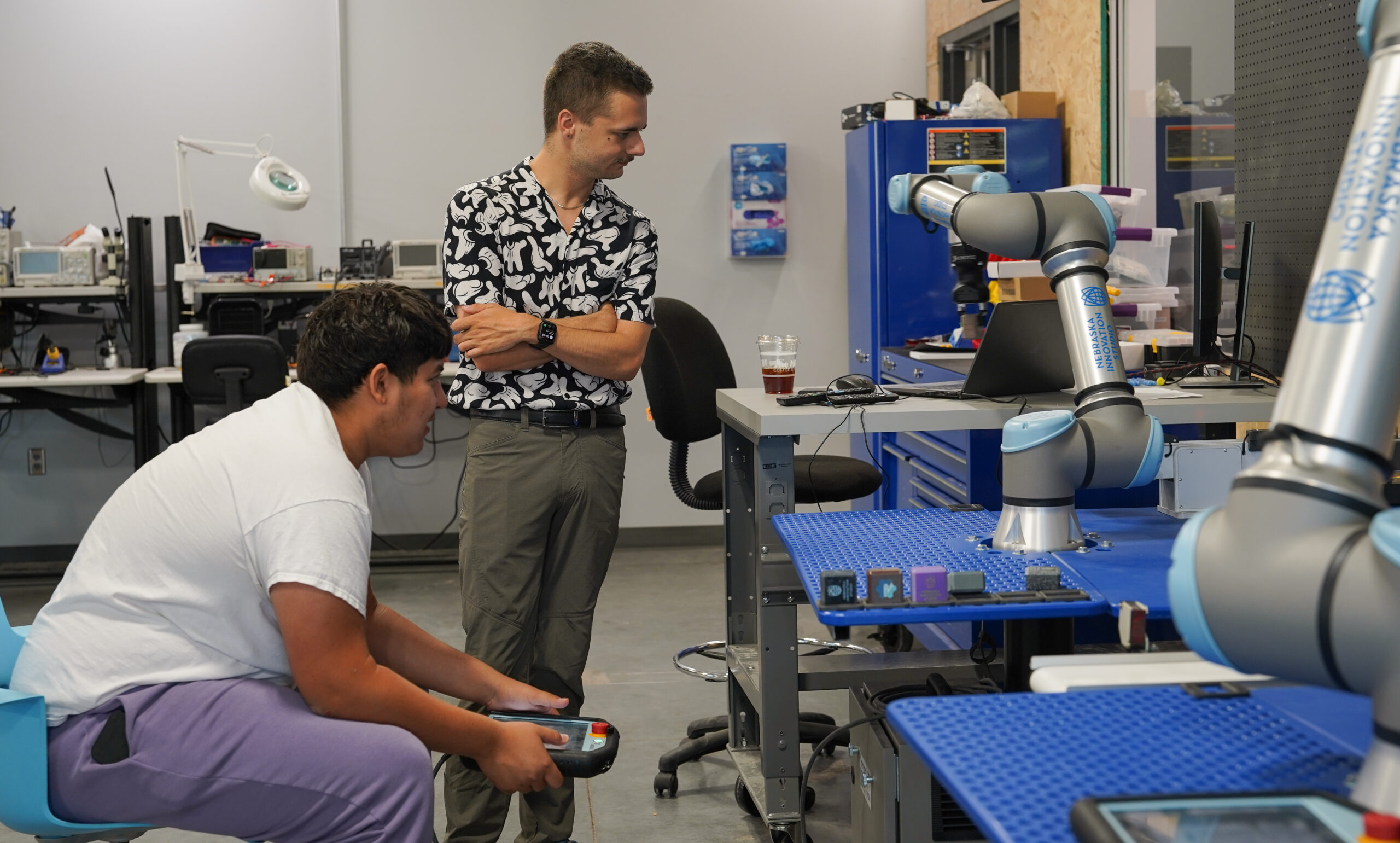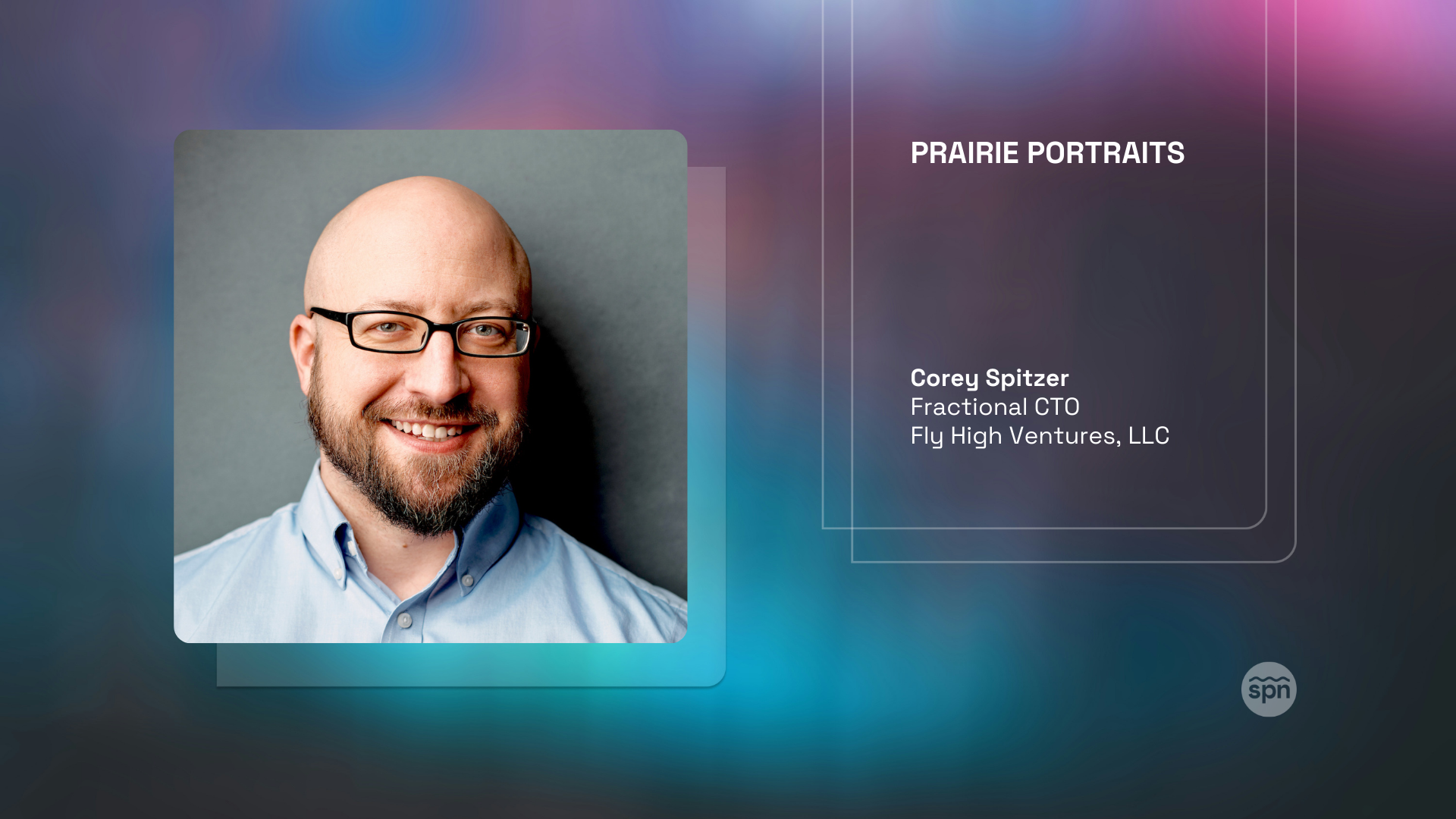Benson High School is launching a new entrepreneurship program to pair students and startups in mentorships that will help them discover alternative career paths.
Greg Schlegel isn’t afraid to be honest about his school’s situation.
In recent years, a student was shot and killed in a nearby neighborhood. In October, a student brought a gun to school. In December, another two students did the same.

It’s not a stretch to say his school gets a lot of negative publicity.
“We don’t want to try and hide it, because people already know,” he said.
Benson High School is on a fulcrum—the mid point between some of Omaha’s most violent neighborhoods and one of its most trendy, up-and-coming areas.
It sits amid numerous stories of success—with graduates like Mayors Chris Beutler and Hal Daub, CEO Walter Scott Jr. of Kiewit and Heisman winner Nile Kinnick—but also of those who fall through the cracks.

Nearly 88 percent of students are on free or reduced lunch. With 17 languages spoken, there’s linguistic diversity, but translators for only 15.
The school has its challenges, but its curriculum director has reason for excitement.
“We’re on the precipice of something really great because we’re looking at giving kids tools and a vision for what they’re doing once they leave high school,” Schlegel (left) said. “What I’m most excited about is, for lack of a better term, some kids getting out of the way of their situation, for kids to latch on to education and for them to see that, ‘I don’t have to be what my situation dictates.’”
This fall Schlegel is looking to tenants in The Mastercraft building—a hub for startups, creatives and investors on the edge of north Omaha—to give his students one more opportunity.
Hopefully, for some, it’s the opportunity that changes everything.
•••
Dusty Reynolds knows an Olympian.
Reynolds and silver medalist volleyball player Jordan Larson both went to the same school in Hooper, Neb., and both were athletic. They were even in PE class together.
But Reynolds—the Greater Omaha Chamber of Commerce‘s entrepreneurship director—is, well, an entrepreneurship director and Larson is an Olympian.
Like athletic ability, Reynolds believes entrepreneurial skills must be activated. You must have some of it innately embedded in you, but that raw talent needs to be engaged to learn and grow those skills, he said.
Most of those entrepreneurial skills aren’t actively used in the classroom, he says, and there needs to be a paradigm shift in how these skills are taught.
“We, as entrepreneurs, should help take the weight off of schools,” Reynolds (right) said.
He believes it’s getting there, but in small steps.
Gallup recently released an “Entrepreneurial StrengthsFinder” assessment to help identify entrepreneurial talent. As part of Gallup’s pilot test, Benson High School gave it to its students.
“An entrepreneur is not the first thing that comes to mind when you think of a career,” Schlegel, Benson’s cirriculum director, said. “But for some kids, it’s the perfect avenue.”
That Gallup assessment is how Benson High School and Reynolds first intersected.
Currently, Benson’s building is half full. The magnet school, which only has 1,200 students, is struggling to attract students.
Administrators hope three new “academies”—specialized curriculum paths—will help engage students struggling with traditional curriculum. In recent years, Benson has had some of the lowest test scores in the city, according to an Omaha World-Herald analysis.
The new academies include a health and wellness program, partnered with University of Nebraska Medical Center; a creative and technical science academy with the National Electrical Contractors Association; and a small-business academy with an entrepreneurial subset through the Chamber and Mastercraft.
Last fall, when Reynolds met with Benson’s principal, Anita Baldwin, he says he saw her love and enthusiasm for students.
“She was very eager to make a mentorship program happen,” he said.
They talked about a mentorship program where entrepreneurs paired with students to give them a choice other than the traditional, four-year college route.
“We saw this as a way to get kids out and experience things outside the building, working with entrepreneurs and learning tools of the trade,” Schlegel said.
The Mastercraft building, located just north of downtown, is home to startups and other small businesses.
Students in the small-business academy will learn business principles, but those enrolled in the entrepreneurial “pocket academy” also will shadow tech startups and learn about developing products and services as well as bringing them to market.
One group is tentatively set to create and staff a student-run coffee shop in The Mastercraft for the fall 2014 semester. Student managers would be given authority over day-to-day operations, from scheduling, ordering, accounting and hiring to making and selling coffee and other goods.
Others may be working with partners like Dundee Venture Capital and the Straight Shot accelerator, the Benson Business District, Scooter’s Coffee, First National Bank and eBay. Not all the partnerships are finalized.
While plans are still coming together, the idea is to have the juniors and seniors enrolled in the program spend one morning or afternoon per week at Mastercraft, networking, taking a business class and working on projects throughout the semester, Schlegel said.
In all, the program would cater to about 100 students each year. Students would need to apply and be vetted for the program, and Schlegel is still looking for entrepreneurial mentors for students next fall. Entrepreneurs interested in helping with the program can contact him at 402-557-3000 ext. 3038 or greg.schlegel@ops.org.
“We want as many community partners as possible,” he said. “It just makes so much sense for the business world and education world to come together, but for whatever reason, that’s always been tough to make those connections.”
•••
What the program ultimately comes down to are the kids.
“So many kids don’t have the best role models in their lives,” Schlegel said. “But when you take them to the Mastercraft and they see people who have also pulled themselves into a better situation, it gives them hope.”
He points to Nashville Public Schools, which has instituted career academies in all their high schools. Before the academies, the average age of a gang member was 16. After academies began in its high schools, that average rose to 21, according to a UC Berkeley study.
“If you can engage them with whatever it is, you might be able to improve their situation,” Schlegel said. “You can get them on the right track.
“I want to see that happen. And if a student doesn’t see themselves at a four-year college or community college, then that’s okay, but let’s see what skills we can give them to be successful in life.”
Schlegel says some students may be intimidated by traditional business stereotypes, but it’s not all a suit, tie and briefcase. He believes the students will be surprised and delighted by what types of startups and atmospheres are in the Mastercraft.
“They’ll see these young people working hard on projects, but also see businesses with couches and video games and they’ll think this is something they can do too,” he said.
Both Reynolds and Schlegel agree the need for talent is out there.
The Bureau of Labor Statistics reports that software development and other startup employment is one of the fastest growing industries, with a nearly 25 percent growth clip in the next decade. But Reynolds says locally the supply of talent can’t keep up with the ever-increasing demand.
“It doesn’t make sense to churn out people going into jobs with no demand,” Reynolds said.
While they probably won’t be learning coding skills through these classes, Schlegel says it plants the seed.
“We think this program could help reach the kids who slip through the cracks (of traditional education),” he said. “The issues we have with shootings, gang involvement… That may all go away with engaged kids.
“We need them to say, ‘Why can’t I be the next Bill Gates, or like the women who started eCreamery?’”
Credits: Benson High School photo from HistoricOmaha.com. Greg Schlegel photo courtesy of Schlegel. Dusty Reynolds photo from Greater Omaha Chamber. Mastercraft building photo from Mastercraft’s Facebook page.

 |
 |
 |






